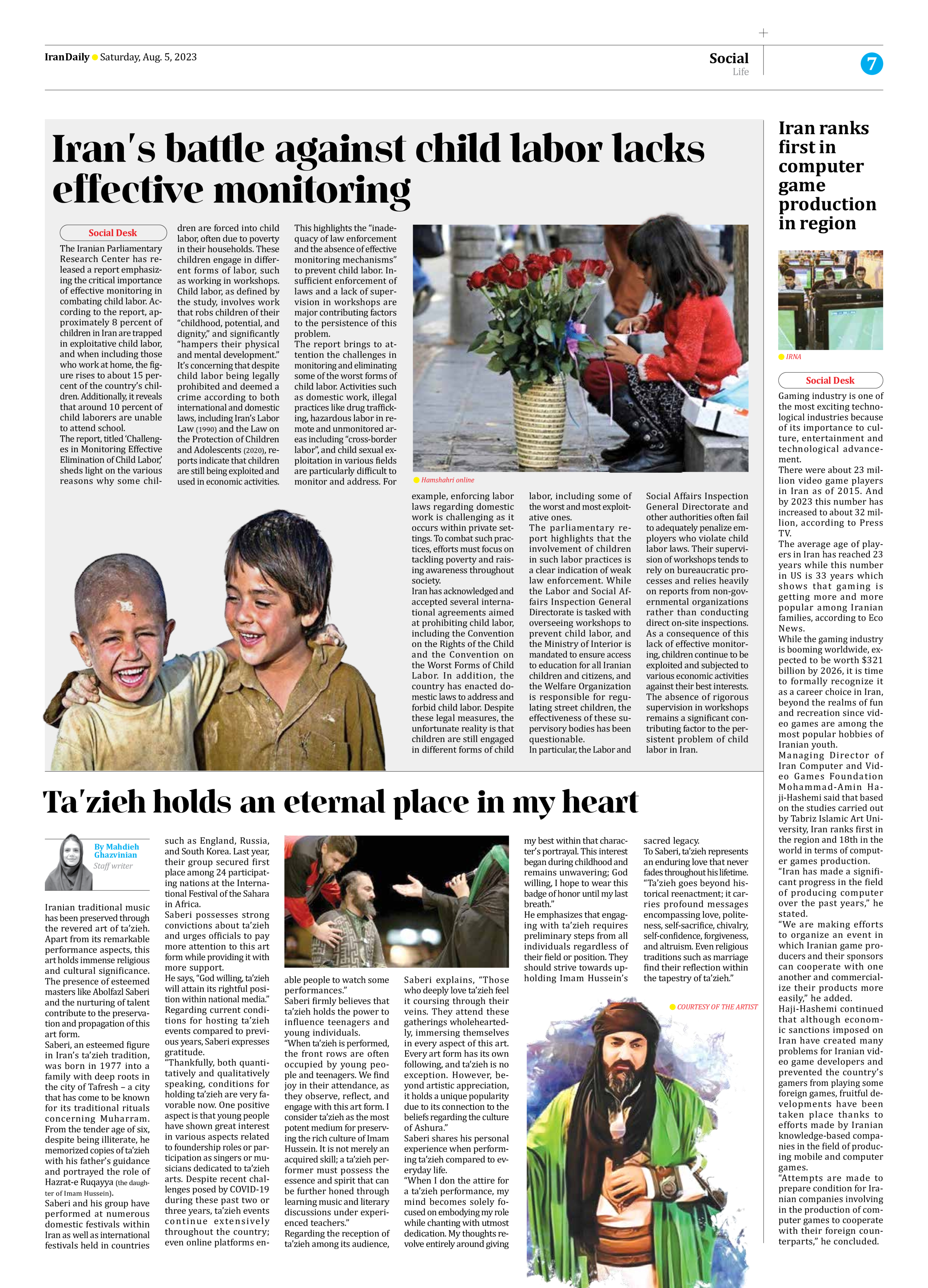
Ta’zieh holds an eternal place in my heart
By Mahdieh Ghazvinian
Staff writer
Iranian traditional music has been preserved through the revered art of ta’zieh. Apart from its remarkable performance aspects, this art holds immense religious and cultural significance. The presence of esteemed masters like Abolfazl Saberi and the nurturing of talent contribute to the preservation and propagation of this art form.
Saberi, an esteemed figure in Iran’s ta’zieh tradition, was born in 1977 into a family with deep roots in the city of Tafresh – a city that has come to be known for its traditional rituals concerning Muharram. From the tender age of six, despite being illiterate, he memorized copies of ta’zieh with his father’s guidance and portrayed the role of Hazrat-e Ruqayya (the daughter of Imam Hussein).
Saberi and his group have performed at numerous domestic festivals within Iran as well as international festivals held in countries such as England, Russia, and South Korea. Last year, their group secured first place among 24 participating nations at the International Festival of the Sahara in Africa.
Saberi possesses strong convictions about ta’zieh and urges officials to pay more attention to this art form while providing it with more support.
He says, “God willing, ta’zieh will attain its rightful position within national media.”
Regarding current conditions for hosting ta’zieh events compared to previous years, Saberi expresses gratitude.
“Thankfully, both quantitatively and qualitatively speaking, conditions for holding ta’zieh are very favorable now. One positive aspect is that young people have shown great interest in various aspects related to foundership roles or participation as singers or musicians dedicated to ta’zieh arts. Despite recent challenges posed by COVID-19 during these past two or three years, ta’zieh events continue extensively throughout the country; even online platforms enable people to watch some performances.”
Saberi firmly believes that ta’zieh holds the power to influence teenagers and young individuals.
“When ta’zieh is performed, the front rows are often occupied by young people and teenagers. We find joy in their attendance, as they observe, reflect, and engage with this art form. I consider ta’zieh as the most potent medium for preserving the rich culture of Imam Hussein. It is not merely an acquired skill; a ta’zieh performer must possess the essence and spirit that can be further honed through learning music and literary discussions under experienced teachers.”
Regarding the reception of ta’zieh among its audience, Saberi explains, “Those who deeply love ta’zieh feel it coursing through their veins. They attend these gatherings wholeheartedly, immersing themselves in every aspect of this art. Every art form has its own following, and ta’zieh is no exception. However, beyond artistic appreciation, it holds a unique popularity due to its connection to the beliefs regarding the culture of Ashura.”
Saberi shares his personal experience when performing ta’zieh compared to everyday life.
“When I don the attire for a ta’zieh performance, my mind becomes solely focused on embodying my role while chanting with utmost dedication. My thoughts revolve entirely around giving my best within that character’s portrayal. This interest began during childhood and remains unwavering; God willing, I hope to wear this badge of honor until my last breath.”
He emphasizes that engaging with ta’zieh requires preliminary steps from all individuals regardless of their field or position. They should strive towards upholding Imam Hussein’s sacred legacy.
To Saberi, ta’zieh represents an enduring love that never fades throughout his lifetime.
“Ta’zieh goes beyond historical reenactment; it carries profound messages encompassing love, politeness, self-sacrifice, chivalry, self-confidence, forgiveness, and altruism. Even religious traditions such as marriage find their reflection within the tapestry of ta’zieh.”







